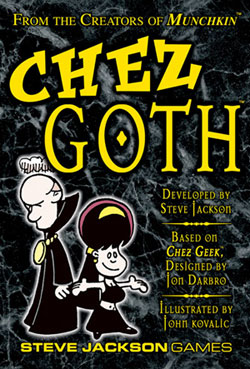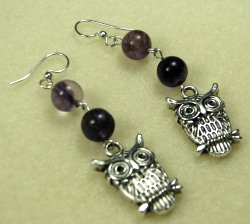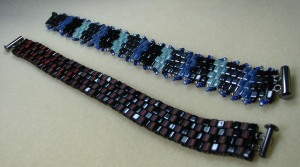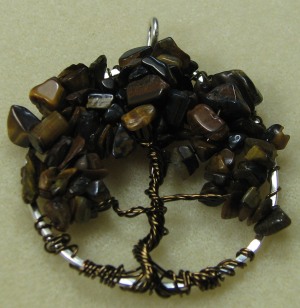 Every once in a while, you hear the obligatory: “Well, this would be a PERFECT game for girls…” I felt I could NOT have a Geek Girl Week and avoid the topic, so I’m going to dive in with both feet.
Every once in a while, you hear the obligatory: “Well, this would be a PERFECT game for girls…” I felt I could NOT have a Geek Girl Week and avoid the topic, so I’m going to dive in with both feet.
The truth of the matter is — neither men or women are idiots. Games “for girls” or games “for guys” can be played by either sex. Often, a game is adapted to fit the needs of a market. Business reasons, more than anything else, is what’s behind targeting a particular demographic with the idea that a particular game would sell better if it’s geared toward a particular niche. Yes, that pesky “bottom line” drives decisions and (love it or hate it) businesses need to do this in order to stay afloat. Sometimes the distinction between girl games and boy games is a lot clearer the younger you go, simply because the parents and the grandparents are normally the ones buying the games for their kids.
 Almost all card games and board games have some information on them to help you figure out who it’s for. Chez Goth from Steve Jackson Games lists the number of players, playing time and recommended age groups. Here, this data doesn’t just help us figure out whether or not we want to buy a game, but it also gives us a clue that: “Hey, this game was designed for…” Does it have information on it that helps us make a decision to buy it for girls or boys or both? YES. The artwork on the box depicts cartoonish characters of both male and female goths. (The line on the back… His and Hearse… really cracks me up.) Whether or not we want to, the packaging will force us to make a subconscious decision about how we feel about a game. Doesn’t matter WHAT game it is, either.
Almost all card games and board games have some information on them to help you figure out who it’s for. Chez Goth from Steve Jackson Games lists the number of players, playing time and recommended age groups. Here, this data doesn’t just help us figure out whether or not we want to buy a game, but it also gives us a clue that: “Hey, this game was designed for…” Does it have information on it that helps us make a decision to buy it for girls or boys or both? YES. The artwork on the box depicts cartoonish characters of both male and female goths. (The line on the back… His and Hearse… really cracks me up.) Whether or not we want to, the packaging will force us to make a subconscious decision about how we feel about a game. Doesn’t matter WHAT game it is, either.
Themes and artwork can distinguish whether or not a game is for girls or boys, and often you’ll find so-called early girly games full of fashion, horses and pastel colors. Grown women, on the other hand, play a variety of games in the crossword/Sudoku/etc. category, but there’s also a large (albeit and arguably quite invisible) demographic of female video gamers you rarely hear about. Part of this, in my opinion, is that there’s a stigma attached to playing games. The depiction of gamers as slackers who live in their parent’s basement really hurts the career-minded professional who likes to shoot up zombies every now and then. Add gender roles on top of that and you get the possibility of becoming a social outcast — just because you like to play a game. I’ve talked to MANY women gamers over the years who were afraid to bring forth their controllers, their dice, and their tables. They told me I was brave, and after experiencing some of the b.s. surrounding these stigmas myself, I can see why they thought that. Still, I yam who I yam who I yam.
[MONICA GEEK ALERT: Here’s the funny thing about that: the idea that gamers are lazy has roots in Puritanism. Ever here the expression Americans live to work and the rest of the world works to live? Yep, same thing. Study after study after study proves, though, that human beings are not mindless robots. We need time to play, to relax to increase our efficacy on the job and enrich our lives. Not to mention, more information is coming out that gaming is good for your brain — it keeps your mind active AND prevents Alzheimer’s!]
Some adult games, like video games, are more apparent in terms of who their audience is. There are several video games I’ve tried to play but wound up putting down because the boob physics were so in-your-face I couldn’t get past them to enjoy the story or the action. *coughs* Bloodrayne *coughs* Other games, like the Final Fantasy franchise, appeal to me because I enjoy a good story. The emphasis on the relationship between the characters, coupled with the fanastical world building, really helps me get into a character. And, like I mentioned in my post about a character I most identify with, some of the games have strong, female characters.
Needless to say, this is why role-playing games are (and will always be) more friendly toward women. Your imagination is what drives the story at the table, so if your group is friendly toward women? Your game will probably be friendly toward women. Not only that, but game mechanics have improved so much, that the chances are excellent you’ll find a game you like. For a first game, I’d recommend picking up a tie-in product, just because it’s sometimes easier to dive into a role if you know the setting. I’d also recommend going to conventions, but that’s a whole ‘nother topic.
When it comes down to brass tacks, though, in order to be open-minded about anything, at any time, you have to look past the stereotypes. Those preconceived notions exist because that’s how humans categorize information. Getting past stupid assumptions takes time and energy that often makes people feel uncomfortable, because we often gravitate toward what we’re interested in and what others have encouraged us to be interested in. Take someone out of their comfort zone, and there’s always the possibility of change. For many people? Change is more frightening than death.
I’ll give you an example. I was intimidated by Magic: the Gathering. Frightened. To. Death. One? I’m a pretty competitive person when it comes to gaming and play to win. (Can we say min/maxer?) When I’m just learning, though, I hate being beaten to death with terms I don’t understand and precocious attitudes because I don’t feel like I’m part of the club. That didn’t happen with Magic, though. A few years ago, I was writing an article for [redacted] and managed to get quotes from the women at WOTC who talked about how many female champions there were. Wizards of the Coast has been nothing but nice and supportive to us at www.flamesrising.com, so when the opportunity came up to learn how to play Magic the Gathering at a convention? I took it. And… I beat the judge. And… I was invited to play in a weekly game. Right now, their open game sessions conflict with my schedule, but once my evenings are balanced I’m definitely going to play more often than I do.
I feel it is absolutely pointless to blame a company or a marketing team for “being wrong” about the demographic that they’re targeting. Businesses have data, they have experience, and they have financial numbers to support what they’re doing. The ONLY way games will change, is if our buying habits ALSO change AND we get more diverse game designers on staff.
So, if you’re sick of so-called “girl games,” then don’t buy them for yourself or as a gift! Try something new. Play demos. Go to conventions. If you’re unhappy with how a company designed a game, then contact them. Write letters. Talk to the designers. Find companies you want to support and which ones you won’t. You’d be surprised what is waiting for you out there: there’s a whole community of us that would LOVE to talk to you!
If you’re seriously interested in the hobby, getting involved is as simple as walking to your local game store. Or, if you’re anything like me — start freelancing and get on those design teams. ‘Cause I gotta tell you, there’s nothing more satisfying than being on the ground floor of a brand new game.
Thoughts? Comments? Questions? Leave ’em or weep!
 Over the years, I’ve given gifts and have infected other people with the jewelry design bug. Some of the techniques are pretty easy; others are definitely more complicated. Fortunately, I found a haven at a local bead store called Fat Cat Beads. Classes are really inexpensive and I’ve been going through my bead inventory and designing more of my own. My style is a little bit more mod than supreme frou-frou, but I’ve got a few more complex designs that I’ll get into below.
Over the years, I’ve given gifts and have infected other people with the jewelry design bug. Some of the techniques are pretty easy; others are definitely more complicated. Fortunately, I found a haven at a local bead store called Fat Cat Beads. Classes are really inexpensive and I’ve been going through my bead inventory and designing more of my own. My style is a little bit more mod than supreme frou-frou, but I’ve got a few more complex designs that I’ll get into below. As you can imagine, this is also ridiculously time-consuming and I’m nowhere near done. After the beads have been attached to the loom, then there’s the issue of sewing it onto a leather fabric and embellishing on top of that.
As you can imagine, this is also ridiculously time-consuming and I’m nowhere near done. After the beads have been attached to the loom, then there’s the issue of sewing it onto a leather fabric and embellishing on top of that.
 The one on the top was my first attempt at playing around with a design. I really like how it turned out because it’s very three-dimensional. Next I want to play around with square beads of different sizes, including a pile of six-sided dice I have.
The one on the top was my first attempt at playing around with a design. I really like how it turned out because it’s very three-dimensional. Next I want to play around with square beads of different sizes, including a pile of six-sided dice I have.


